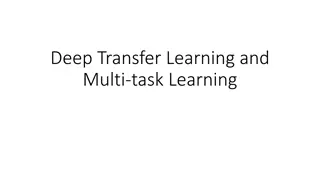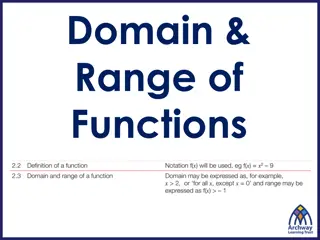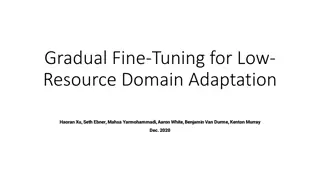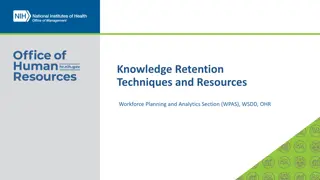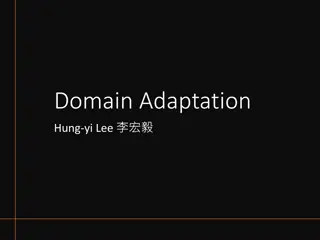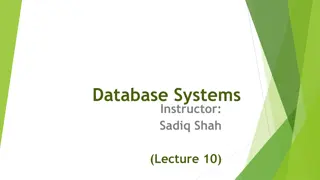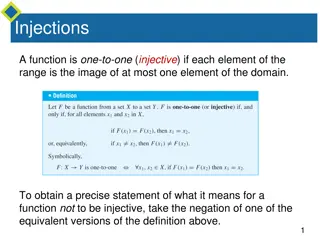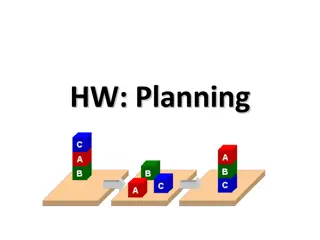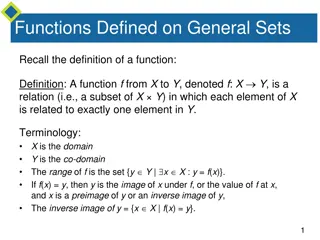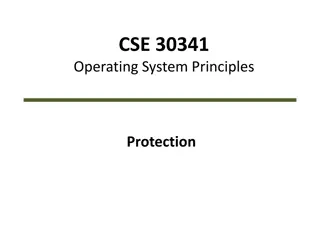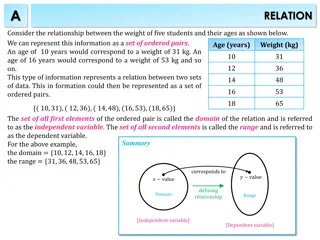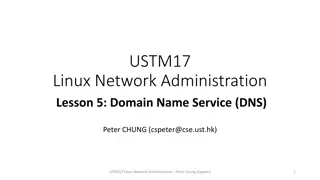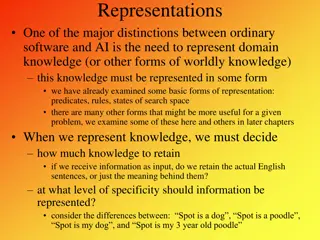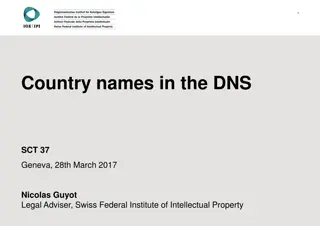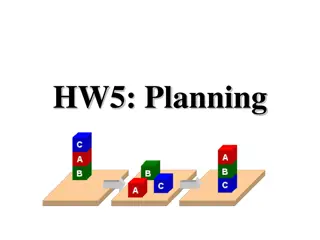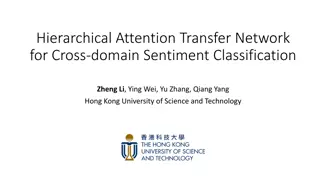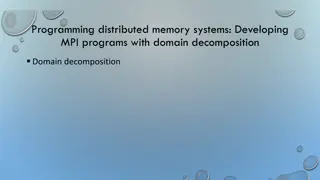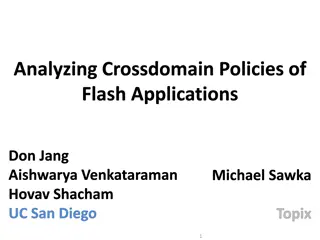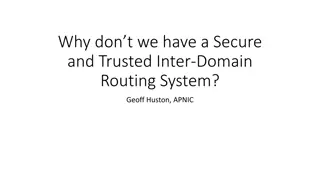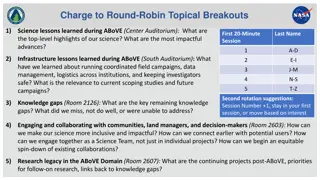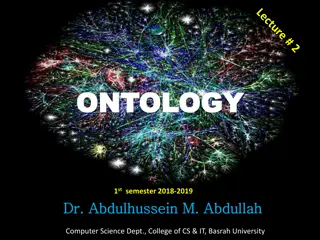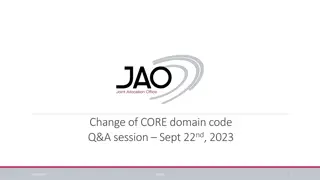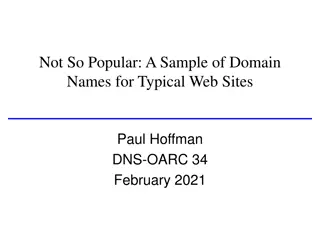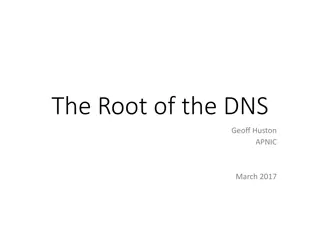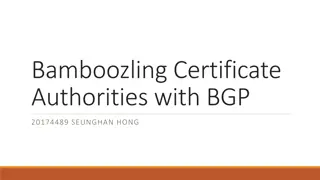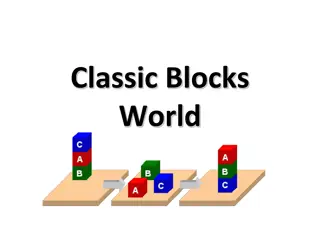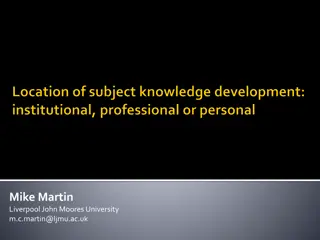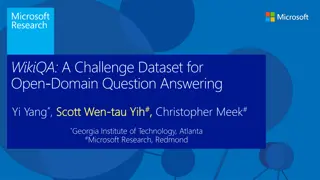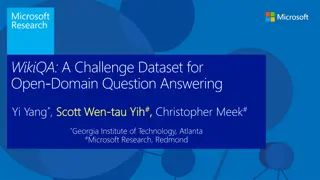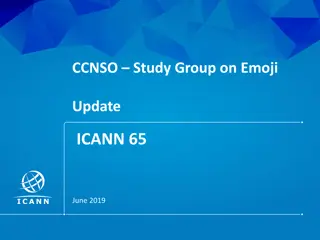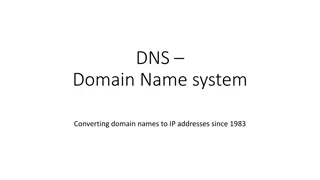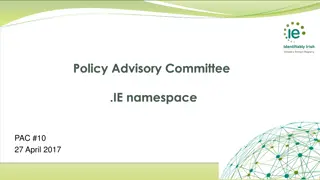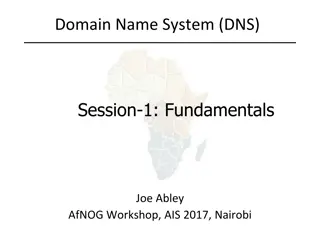Knowledge Capture
Knowledge capture is crucial for organizations to retain valuable expertise and prevent loss of critical knowledge due to employee turnover. Tacit and explicit knowledge play key roles, requiring strategic planning for retention, incentivizing knowledge-sharing culture, and implementing effective st
0 views • 6 slides
Understanding Knowledge Management: Processes and Frameworks 2. In knowledge management, organizations create, share, and manage knowledge to enhance performance. It involves acquiring different types of knowledge through various means, such as perc
Knowledge Management, Organizational Objectives, Types of Knowledge, Tacit Knowledge, Explicit Knowledge
1 views • 17 slides
Understanding Deep Transfer Learning and Multi-task Learning
Deep Transfer Learning and Multi-task Learning involve transferring knowledge from a source domain to a target domain, benefiting tasks such as image classification, sentiment analysis, and time series prediction. Taxonomies of Transfer Learning categorize approaches like model fine-tuning, multi-ta
1 views • 26 slides
The Vital Role of Domain Knowledge in Data Science and How to Acquire It
In the dynamic field of data science, technical skills alone aren\u2019t enough to ensure success. Domain knowledge, or understanding the specific context of the industry you\u2019re working in, is equally important. Delving into the realm of data sc
1 views • 1 slides
Understanding Domain and Range of Functions
Understanding functions involves exploring concepts such as domain, range, and algebraic inputs. This content covers topics like constructing functions, common functions like quadratic and trigonometric, and solving functions based on given domain and range. It also provides practice questions to te
1 views • 21 slides
Gradual Fine-Tuning for Low-Resource Domain Adaptation: Methods and Experiments
This study presents the effectiveness of gradual fine-tuning in low-resource domain adaptation, highlighting the benefits of gradually easing a model towards the target domain rather than abrupt shifts. Inspired by curriculum learning, the approach involves training the model on a mix of out-of-doma
0 views • 17 slides
Effective Knowledge Retention Strategies in Workforce Planning and Analytics
Retaining knowledge is crucial for organizations to enhance customer service, foster innovation, improve efficiency, and bridge skill gaps. This article explores the significance of knowledge retention, the types of knowledge essential for succession planning, and two effective strategies - the Know
1 views • 10 slides
Understanding Domain Adaptation in Machine Learning
Domain adaptation in machine learning involves transferring knowledge from one domain to another. It addresses the challenge of different data distributions in training and testing sets, leading to improved model performance. Techniques like domain adversarial training and transfer learning play a k
0 views • 16 slides
Understanding Integrity Constraints in Relational Database Systems
Integrity constraints play a crucial role in maintaining the accuracy and integrity of data in a database. They include domain constraints, entity integrity, and referential integrity, each serving a specific purpose to ensure data consistency and reliability. Domain constraints ensure values in a c
0 views • 12 slides
Understanding Injective and Surjective Functions
Injective functions map elements from the domain to the range uniquely, while surjective functions ensure every element in the co-domain has a corresponding element in the domain. The negation of injective means finding x1 and x2 in the domain with the same function value but not equal, whereas for
1 views • 26 slides
Introduction to PDDL Planning Domain
PDDL (Planning Domain Description Language) is a language based on STRIPS with various extensions originally defined by Drew McDermott. It is used in the International Planning Competition (IPC) series and offers a standard input for many planners. Tasks are specified using two files: domain file an
6 views • 13 slides
Understanding Functions: Definitions and Arrow Diagrams
Recall the definition of a function, where each element in the domain is related to exactly one element in the co-domain. Arrow diagrams can visually represent functions from finite sets X to Y. In this example, a function is defined from X = {a, b, c} to Y = {1, 2, 3, 4} using arrow diagrams, showc
8 views • 28 slides
Understanding Operating System Protection Principles
Explore the goals, principles, and implementation of protection in computer systems, including access matrix, domain structure, and capability-based systems. Learn how protection domains and access control are used to specify resource access, and delve into the concept of least privilege and dynamic
4 views • 21 slides
Understanding Relations and Functions in Mathematics
A relation is a correspondence between two sets where each element in the first set (domain) corresponds to at least one element in the second set (range). Functions are special relations where each element in the domain has a unique correspondence in the range. Surjective functions map the entire r
0 views • 12 slides
Understanding Domain Name Service (DNS) in Linux Network Administration
Domain Name Service (DNS) is a crucial scheme for resolving hostnames in a network, eliminating the need to record all hostnames in a local file. The Berkeley Internet Name Domain service (BIND) is a prominent DNS implementation providing efficient hostname resolution. DNS organizes hostnames in a h
0 views • 35 slides
Understanding Knowledge Representation in Artificial Intelligence
In AI, representing domain knowledge is crucial and comes in various forms like predicates, rules, and search space states. Deciding the level of specificity and form of representation is key. Knowledge can be categorized into procedural, domain, and common sense knowledge, available in forms such a
2 views • 32 slides
Country Names in the Domain Name System (DNS)
The Domain Name System (DNS) plays a crucial role in attributing top-level and second-level domains to country names. This system is global and managed by ICANN, not national offices, allowing for unique attribution to one person. Examples of country names registered as second-level domains are prov
0 views • 7 slides
Introduction to PDDL Planning Domain Language
PDDL (Planning Domain Description Language) is a language based on STRIPS with various extensions, widely used in the International Planning Competition. It allows for specifying tasks via domain and problem files, representing predicates, operators, objects, initial states, and goal states. Blackbo
0 views • 11 slides
Hierarchical Attention Transfer Network for Cross-domain Sentiment Classification
A study conducted by Zheng Li, Ying Wei, Yu Zhang, and Qiang Yang from the Hong Kong University of Science and Technology on utilizing a Hierarchical Attention Transfer Network for Cross-domain Sentiment Classification. The research focuses on sentiment classification testing data of books, training
0 views • 28 slides
Navigating the World of Big Data, Knowledge, and Crowdsourcing
The world has evolved into a data-centric landscape where managing massive amounts of data requires the convergence of big data, big knowledge, and big crowd technologies. This transformation necessitates the utilization of domain knowledge, building knowledge bases, and integrating human input thro
1 views • 5 slides
Developing MPI Programs with Domain Decomposition
Domain decomposition is a parallelization method used for developing MPI programs by partitioning the domain into portions and assigning them to different processes. Three common ways of partitioning are block, cyclic, and block-cyclic, each with its own communication requirements. Considerations fo
0 views • 19 slides
Understanding Cross-Domain Policies in Web Application Security
This content explores various aspects of cross-domain policies in web applications, including the Same-Origin Policy for JavaScript and Flash, their importance in protecting user data, potential risks of bypassing these policies, and the implications of trusting Flash content to read data from exter
0 views • 64 slides
Challenges in Establishing a Secure Inter-Domain Routing System
The daunting task of creating a secure and trusted inter-domain routing system poses significant challenges due to the decentralized nature of the internet. Addressing issues such as propagation of false routing information, ensuring correct reachability, and dealing with the lack of a clear truth m
0 views • 15 slides
Legacy Research and Community Engagement in ABoVE Domain
Explore the research legacy and community engagement initiatives in the Arctic-Boreal Vulnerability Experiment (ABoVE) domain. Discussions focus on continuing projects, priorities for future research, and collaboration opportunities linked to knowledge gaps. Key themes include community benefits, ap
0 views • 6 slides
Wyoming Eminent Domain Laws - Legal Updates and Negotiations
Wyoming Legislative Changes to Eminent Domain Laws outline the requirements for exercising eminent domain, including proof of public interest and necessity, diligent negotiations, and proper notification to property owners. The laws also emphasize the importance of good faith negotiations and fair c
0 views • 9 slides
Introduction to Ontology in Computer Science
Ontology is the study of existence, with applications in various fields like philosophy, linguistics, and computer science. In computer science, an ontology is an engineering artifact that defines a specific vocabulary to describe a domain, along with explicit assumptions about the vocabulary's inte
0 views • 33 slides
Understanding Modelling Knowledge and Knowledge Representation
Explore the significance of modelling knowledge through knowledge representation, making it explicit, independent, and reusable. Learn why knowledge representation is essential and how it facilitates exchange, query, inference, and visualization. Delve into examples of knowledge application in vario
0 views • 30 slides
Important Update: Change of CORE Domain Code and Impacted Auction Information
An important update has been issued regarding a change in the CORE domain code, impacting auctions for the CORE region. The new domain code and its application date have been specified, along with details on affected auctions and files. Additionally, information on a test phase for long-term and sha
0 views • 4 slides
Understanding Domain Names for Authoritative DNS Servers
Researchers need to accurately define the types of authoritative DNS servers they sample when measuring server properties. This study focuses on collecting domain names used for web servers to assess typical domain name characteristics, highlighting the importance of accurate data for research purpo
0 views • 7 slides
Understanding the Domain Name System (DNS) Structure
The Domain Name System (DNS) is a distributed data collection utilizing a delegation hierarchy to reflect the hierarchical structure of domain names. This system resolves DNS names by discovering information through iterative searches, starting from the root zone. The process involves querying serve
0 views • 25 slides
Securing Domain Control with BGP Attacks and Digital Certificates
Exploring the vulnerabilities of domain control verification in the context of BGP attacks and the role of digital certificates in ensuring security. The process of domain control verification, issuance of digital certificates by Certificate Authorities (CAs), and the significance of Public Key Infr
0 views • 53 slides
Exploring the Classic Blocks World Domain
Discover the classic blocks world domain, starting with the BW domain file and solving problems using planning domains. Learn about predicates, constants, and actions to manipulate objects effectively within the domain.
0 views • 10 slides
Understanding Subject Knowledge Development in Education
Exploring the complexities of subject knowledge development in education, this study delves into areas such as students' existing knowledge, competencies, and the role of institutions in shaping knowledge acquisition. The focus lies on personalizing knowledge to individual needs rather than a fixed
1 views • 22 slides
WikiQA Dataset: Open-Domain Question Answering Challenges
WikiQA Dataset provides a challenge for open-domain question answering, focusing on identifying answers from large-scale knowledge bases such as Freebase and high-quality text sources like Wikipedia. The dataset includes questions sampled from search engine query logs, with candidate sentences sourc
0 views • 24 slides
Open-Domain Question Answering Dataset WikiQA Overview
This content discusses the WikiQA dataset, a challenge dataset for open-domain question answering. It covers topics such as question answering with knowledge base, answer sentence selection, QA sentence dataset, issues with QA sentence dataset, and WikiQA dataset details. Various aspects of open-dom
0 views • 24 slides
Understanding the Role of CCNSO Study Group on Emoji in the Internet Community
The CCNSO Study Group on Emoji was established to address the use of emojis as second-level domains within the ccTLD community. This study group aims to provide a comprehensive overview of the associated issues and current practices, potentially advising on further actions. The group was initiated i
0 views • 18 slides
Ensuring Secure Internet Connections: Understanding Domain Verification
This content delves into the importance of verifying domain authenticity to safeguard against potential online scams and phishing attempts. It explores how organizations like the Commonwealth Bank of Australia use domain name certification processes, encryption techniques, and trusted third parties
0 views • 54 slides
Evolution of Domain Name System (DNS) Since 1983
Domain Name System (DNS) has played a crucial role in converting domain names to IP addresses since its inception in 1983. This system has revolutionized the way we navigate the internet, translating human-readable names into machine-readable IP addresses. The distributed and hierarchical nature of
0 views • 23 slides
Proposed Policy Change for .ie Domain Registration
The proposed policy change for .ie domain registration aims to remove the requirement of proving a claim to the name. Instead, applicants with a genuine connection to Ireland can register any name they desire. This change is driven by a renewed focus on national resource development and aligns with
0 views • 15 slides
Understanding Domain Name System (DNS) Fundamentals
The Domain Name System (DNS) is a crucial component of the Internet, facilitating the conversion of human-readable domain names into IP addresses. This session covers the basics of DNS, the need for names in computing, challenges of the old HOSTS.TXT system, the distributed nature of DNS, its hierar
0 views • 29 slides


